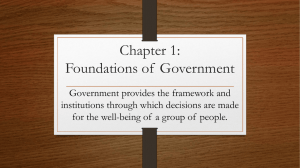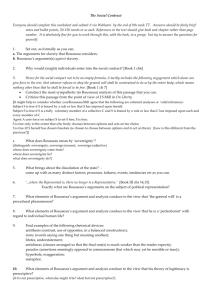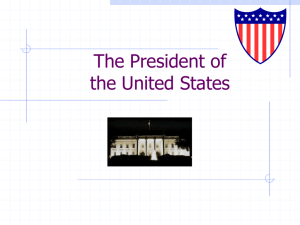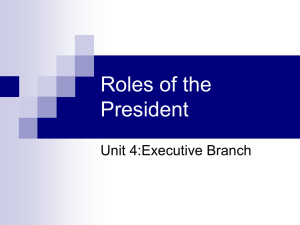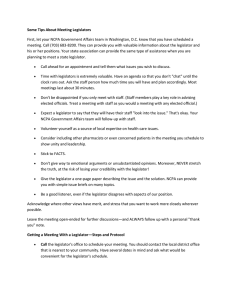17.03. Introduction to Political Thought Social Contract
advertisement
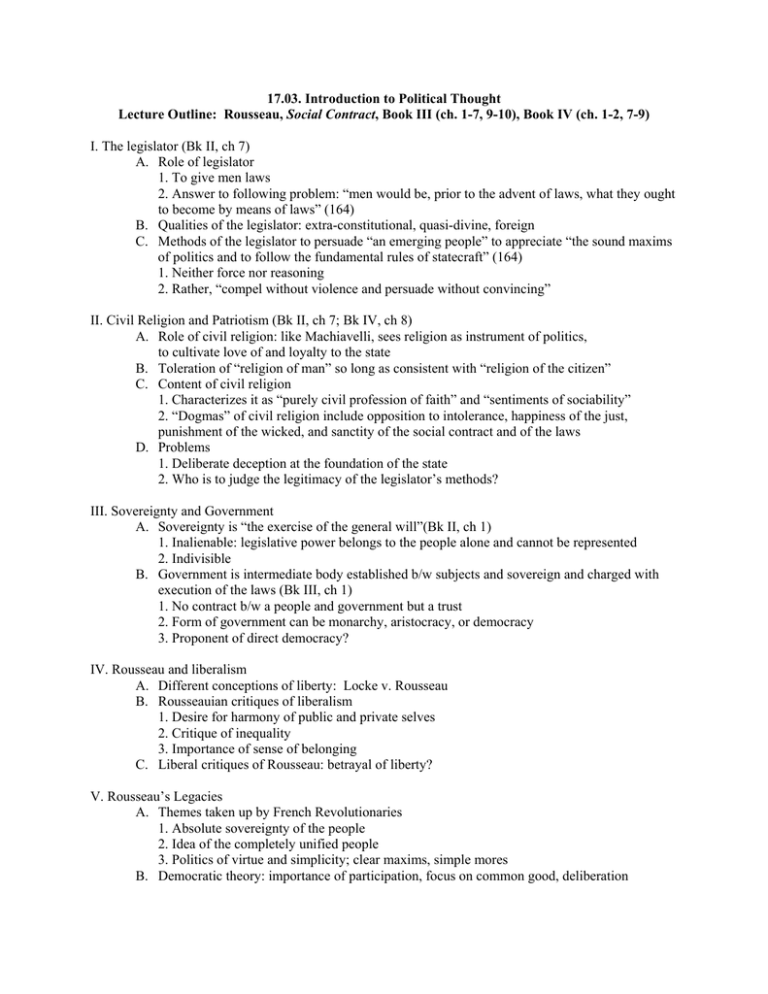
17.03. Introduction to Political Thought Lecture Outline: Rousseau, Social Contract, Book III (ch. 1-7, 9-10), Book IV (ch. 1-2, 7-9) I. The legislator (Bk II, ch 7) A. Role of legislator 1. To give men laws 2. Answer to following problem: “men would be, prior to the advent of laws, what they ought to become by means of laws” (164) B. Qualities of the legislator: extra-constitutional, quasi-divine, foreign C. Methods of the legislator to persuade “an emerging people” to appreciate “the sound maxims of politics and to follow the fundamental rules of statecraft” (164) 1. Neither force nor reasoning 2. Rather, “compel without violence and persuade without convincing” II. Civil Religion and Patriotism (Bk II, ch 7; Bk IV, ch 8) A. Role of civil religion: like Machiavelli, sees religion as instrument of politics, to cultivate love of and loyalty to the state B. Toleration of “religion of man” so long as consistent with “religion of the citizen” C. Content of civil religion 1. Characterizes it as “purely civil profession of faith” and “sentiments of sociability” 2. “Dogmas” of civil religion include opposition to intolerance, happiness of the just, punishment of the wicked, and sanctity of the social contract and of the laws D. Problems 1. Deliberate deception at the foundation of the state 2. Who is to judge the legitimacy of the legislator’s methods? III. Sovereignty and Government A. Sovereignty is “the exercise of the general will”(Bk II, ch 1) 1. Inalienable: legislative power belongs to the people alone and cannot be represented 2. Indivisible B. Government is intermediate body established b/w subjects and sovereign and charged with execution of the laws (Bk III, ch 1) 1. No contract b/w a people and government but a trust 2. Form of government can be monarchy, aristocracy, or democracy 3. Proponent of direct democracy? IV. Rousseau and liberalism A. Different conceptions of liberty: Locke v. Rousseau B. Rousseauian critiques of liberalism 1. Desire for harmony of public and private selves 2. Critique of inequality 3. Importance of sense of belonging C. Liberal critiques of Rousseau: betrayal of liberty? V. Rousseau’s Legacies A. Themes taken up by French Revolutionaries 1. Absolute sovereignty of the people 2. Idea of the completely unified people 3. Politics of virtue and simplicity; clear maxims, simple mores B. Democratic theory: importance of participation, focus on common good, deliberation
